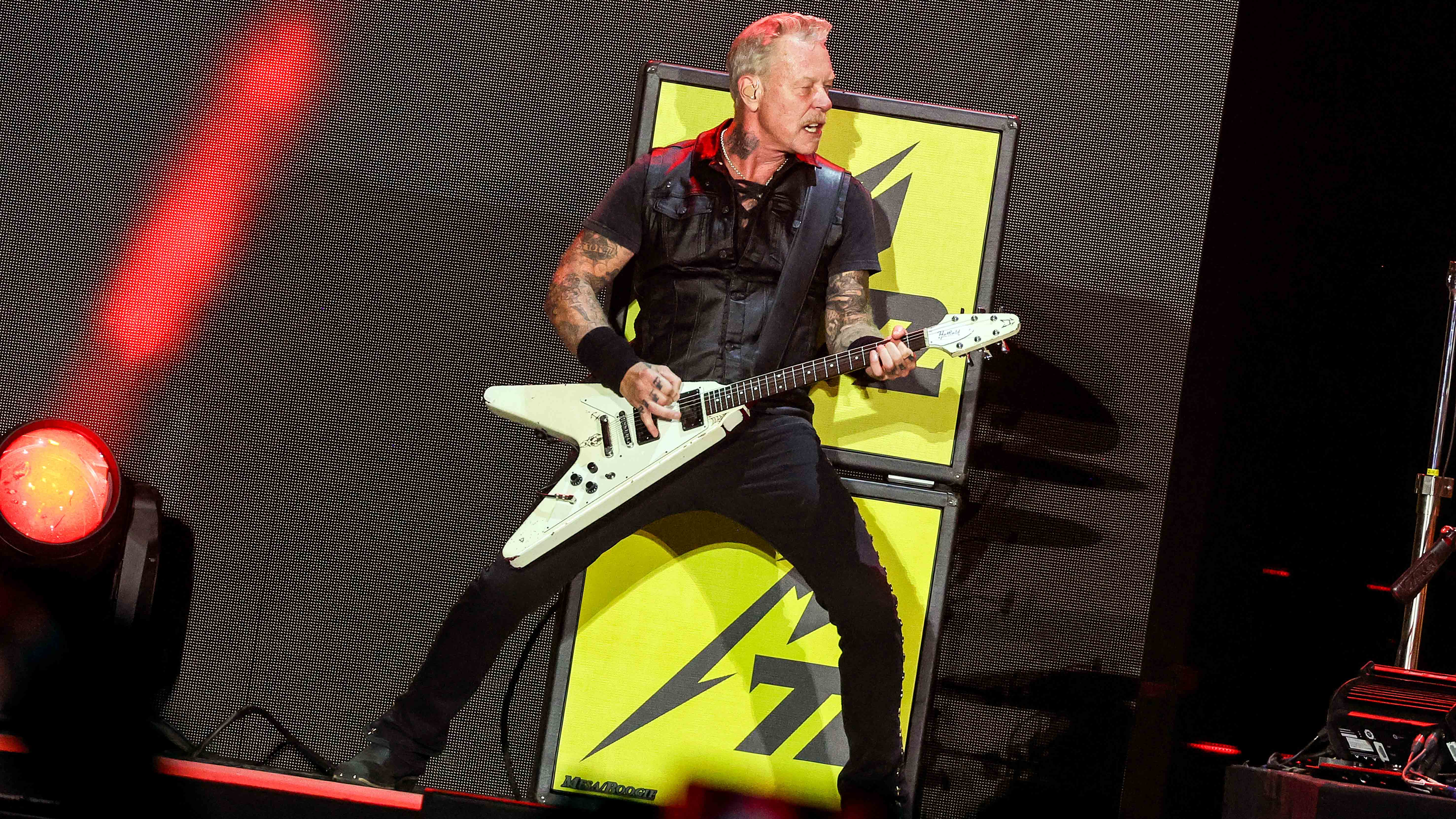
Greg Fidelman has developed a close working relationship with Metallica that saw him co-producing their latest album 72 Seasons with James Hetfield and Lars Ulrich, as well as its two predecessors, Hardwired… To Self Destruct. In a two-hour chat with Dave Friedman and Marc Huzansky on their Tone-Talk podcast, he lifted the lid on the way Hetfield tended to work with him on guitar tones in the studio.
"With a player like James, when you get someone who is that in-tune with what they're doing and what they're trying to sound like… he's pretty particular," remarked Fidelman of Hetfield's nose for the tube amp tones he likes. "If it gets mushy at all, he's out… I often want to put more gain [on] than he likes. Same thing with Kirk. They both [say], 'It's getting a little too dirty'… so it's always a back and forth.
"It's interesting sometimes when you get those guys – especially when they grow up with older style amps," the producer reflected. "The highest gain amp in 1983 is probably considered a clean amp now or something. They grew up with that feel and they still like – they're still used to it."
One of Fidelman's tasks for 72 Seasons was to present and manipulate a blend of Hetfield's amp heads for the guitarist's approval while he tracked, sometimes emphasising one over the other depending on the parts. And it was loud – up to a dozen cabs were mic'd up in Fidelman's studio.
The blend between those amps changes so it's not always four amps at the same time, but usually it's three
"There's always a combination of amps," confirmed Fidelman. "[For James] there was the José [read on for more on this amp], the[Mesa/Boogie] MkIIC++ [aka the 'Crunch Berries' amp] he's had forever, a Diezel, a Plexi Marshall kind of [Canadian brand] Wizard but with a Klon pedal in front of it. And those four amps are always running, and depending on what the song is or whatever, the blend between those amps changes so it's not always four amps at the same time, but usually it's three.
"There's usually one that's the main thing, then [another] just adds a little of that [and another] a little of this. It's always crazy – you'll hear the sound and then solo the Wizard or whatever and you'll think, that sounds ridiculous, that doesn't sound good at all. Then you mute that and you're like, 'Oh s**t the bottom just dropped out'. You can't imagine when you listen to it by itself that it's doing what it's doing. It's an interesting thing that happens.
"And again, if I push the wrong thing [James] might be, 'I'm losing the facial thing I had a minute ago – it sounded more aggressive before and now it's too boomy or whatever'. And a lot of that has to do with the balance of the amps, or the mics I suppose. But it's quite loud in the amp room… it gets pretty hairy"
The 'José amp' Fidelman refers to is a Marshall late '60s / early '70s Super Lead modded by late tech José Arredondo, who was friends with Eddie Van Halen but it still remains unclear if he ever modded the late legend's Plexis. In an interview with Total Guitar Fidelman noted the amp wasn't working very well during the sessions for the Hardwired album and before starting work of 72 Sessions, called Friedman to see if he could help. In the podcast chat the amp designer confirms what work he did on Hetfield's modded Marshall amp.
James loved it and that amp is a major part of the sound that he had on this last record
"There were all sorts of weird things with that amp, and some broken things," begins Dave Friedman. "One thing I had to do is there was a 200-watt output transformer in it, which isn't stock to the amplifier and I'm not sure why it was ever there. I don't know why it was ever put in there. So we changed it to a 100-watt output transformer, one of mine. And I went through the circuit and went through everything and I made it sound good. It's still the mod, I didn't sit there and alter the thing – I just made it the best it could sound. And it did sound really good."
Hetfield agreed. "James loved it and that amp is a major part of the sound that he had on this last record," responded Fidelman. "He loved it and it's all over the record. It became of the amps that made up his main rhythm sound."
The Arredondo mod to Hetfield's Plexi is known as the three-in-one mod, resulting in adding a gain stage. "It's not massively high-gan or anything," noted Friedman. "Real guys don't use that much gain really. That is the worst thing you can do for a mix – you want more percussiveness and you want more clean, and it'll sound bigger. Much larger and better tone – when you start stacking guitars especially."







